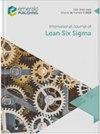工业革命与环境可持续性:工业4.0研究成分的分析解释
IF 3.7
2区 工程技术
Q2 ENGINEERING, INDUSTRIAL
引用次数: 8
摘要
环境可持续性正迅速成为工业发展中最关键的问题之一。本研究旨在进行系统的文献综述,通过文献综述,作者可以为未来的研究人员提供各种研究领域,并为工业4.0和环境可持续性提供见解。设计/方法/方法本研究通过在Scopus数据库上使用文本挖掘进行反向分析来实现这一目标。潜在语义分析(LSA)用于分析2013年至2023年间发表的4364篇文章的语料库。作者使用工业革命和环境可持续性领域的关键词生成了10个集群,突出了10个进一步探索的研究途径。在本研究中,三个研究问题讨论了环境可持续性与工业4.0的作用。作者预测了10个被视为近期趋势的集群,未来的研究人员需要对这些趋势有更多的了解。作者提供了年度分析、顶级作者、顶级国家、顶级来源和与主题相关的网络分析。最后,研究提供了工业化对环境可持续性的影响和自动化的未来方面。研究的局限性/意义当前研究的可靠性可能会受到影响,尽管使用的样本量很大。由于检索词、同义词、字符串结构和所用搜索引擎种类的限制,以及准确排除搜索字符串不足的结果,导致文献语料库检索效果不佳。原创性/价值本研究首次运用自然语言处理技术,基于关键词-文献关系预测未来的研究领域。本文章由计算机程序翻译,如有差异,请以英文原文为准。
Industrial revolution and environmental sustainability: an analytical interpretation of research constituents in Industry 4.0
Purpose
Environmental sustainability is quickly becoming one of the most critical issues in industry development. This study aims to conduct a systematic literature review through which the author can provide various research areas to work on for future researchers and provide insight into Industry 4.0 and environmental sustainability.
Design/methodology/approach
This study accomplishes this by performing a backward analysis using text mining on the Scopus database. Latent semantic analysis (LSA) was used to analyze the corpus of 4,364 articles published between 2013 and 2023. The authors generated ten clusters using keywords in the industrial revolution and environmental sustainability domain, highlighting ten research avenues for further exploration.
Findings
In this study, three research questions discuss the role of environmental sustainability with Industry 4.0. The author predicted ten clusters treated as recent trends on which more insight is required from future researchers. The authors provided year-wise analysis, top authors, top countries, top sources and network analysis related to the topic. Finally, the study provided industrialization’s effect on environmental sustainability and the future aspect of automation.
Research limitations/implications
The reliability of the current study may be compromised, notwithstanding the size of the sample used. Poor retrieval of the literature corpus can be attributed to the limitations imposed by the search words, synonyms, string construction and variety of search engines used, as well as to the accurate exclusion of results for which the search string is insufficient.
Originality/value
This research is the first-ever study in which a natural language processing technique is implemented to predict future research areas based on the keywords–document relationship.
求助全文
通过发布文献求助,成功后即可免费获取论文全文。
去求助
来源期刊

International Journal of Lean Six Sigma
Engineering-Industrial and Manufacturing Engineering
CiteScore
8.90
自引率
15.00%
发文量
46
期刊介绍:
Launched in 2010, International Journal of Lean Six Sigma publishes original, empirical and review papers, case studies and theoretical frameworks or models related to Lean and Six Sigma methodologies. High quality submissions are sought from academics, researchers, practitioners and leading management consultants from around the world. Research, case studies and examples can be cited from manufacturing, service and public sectors. This includes manufacturing, health, financial services, local government, education, professional services, IT Services, transport, etc.
 求助内容:
求助内容: 应助结果提醒方式:
应助结果提醒方式:


